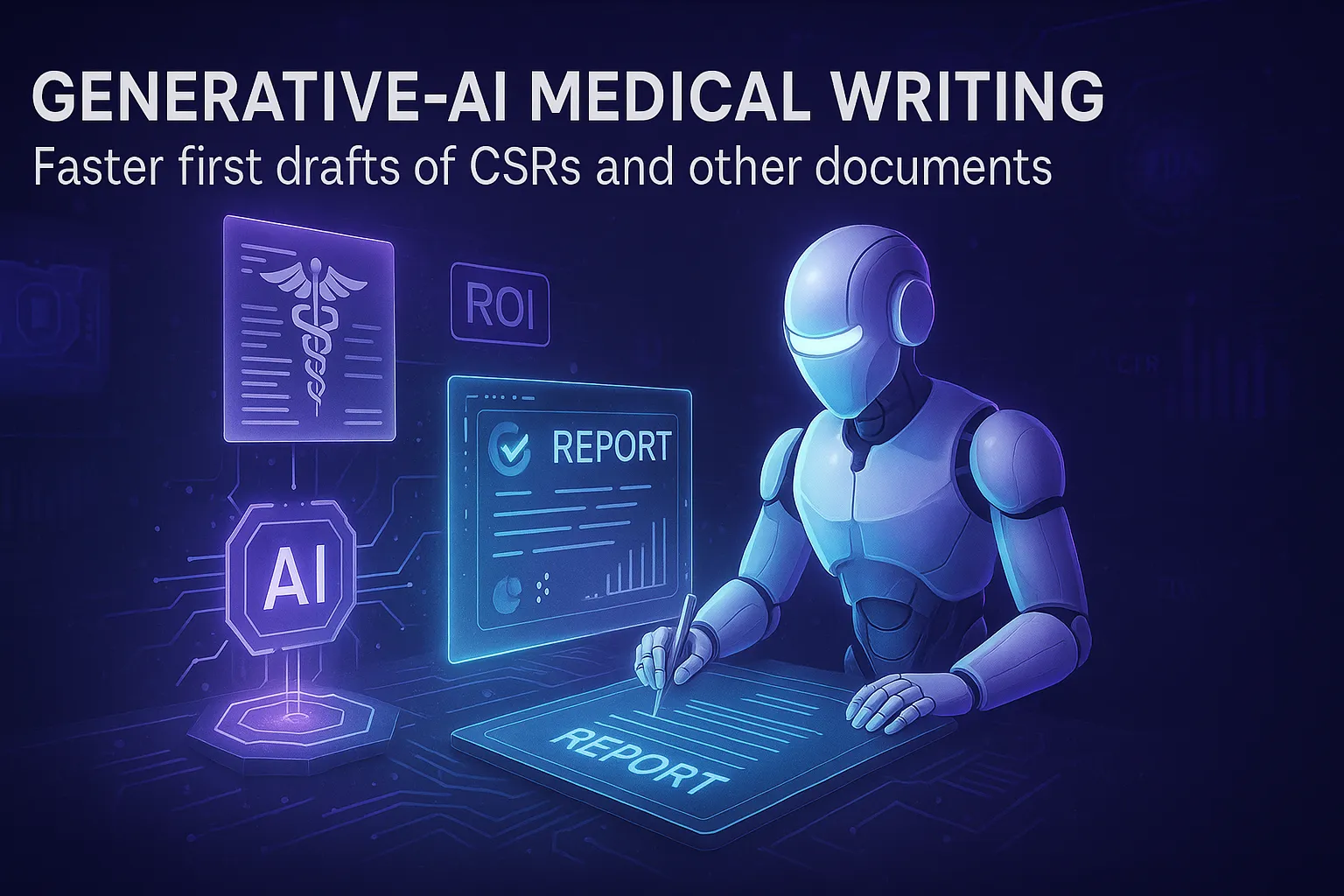QInscribe Launches AI Service to Draft Clinical Study Reports up to 90% Faster
Sep 29, 2025 | 4 min read

New medical writing brand says its AI (artificial intelligence) workflows can produce first-draft CSRs (clinical study reports) in hours, not weeks.
Summary
QInscribe launched a generative-AI medical writing service that targets faster creation of first-draft CSRs and other regulatory documents. The company says its approach combines AI-generated drafts with human medical writers to deliver submission-ready content more quickly. See the launch details and claims in the press announcement.
What happened
- QInscribe announced it can reduce first-draft CSR time by up to 90% using generative AI and templated workflows (press release).
- The company positions its service as AI + expert writer oversight, covering CSRs, protocols, investigator’s brochures, and CTD (Common Technical Document) summaries (company site).
- QInscribe states a first-draft CSR can be produced in as little as ~5 hours versus the traditional 50–100 hours (press release).
Medical writing can benefit from the AI revolution… in a fraction of the time,” said Amol Hule, Associate Director of Medical Writing at QInscribe (press release).
Key numbers and dates
- Launch date: September 29, 2025 (press release).
- Speed claim: ~5 hours for a first-draft CSR (versus 50–100 hours) (press release).
- Scope: Regulatory and scientific writing plus clinical-trial transparency deliverables (company site).
What to watch next
- Sponsor case studies showing cycle-time reductions from draft to approval of CSRs and protocols.
- How QInscribe’s AI guardrails, QC (quality control), and audit trails align with sponsor SOPs and regulatory expectations.
Why this matters for you
Regulatory teams are under pressure to deliver more documents with fewer resources. If AI-assisted drafting can safely shorten the time to a clean first draft, writers can spend more time on interpretation, data checks, and consistency, which reduces rework and helps submissions move faster.
Digital and operations leaders will want to confirm data security, human-in-the-loop review, version control, and traceability before adopting AI drafting at scale. Clear templates, source-data citations, and validation steps make it easier to plug these tools into document management systems and pass audits without slowing down.



 Gradial
Gradial  PEGA
PEGA 




